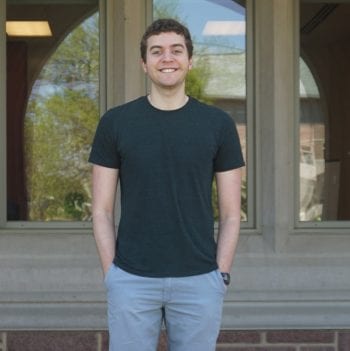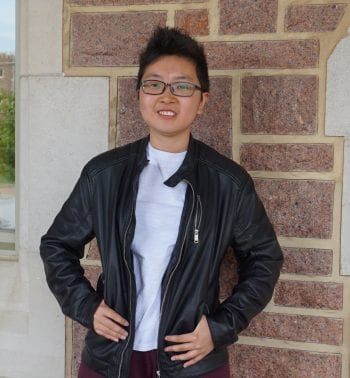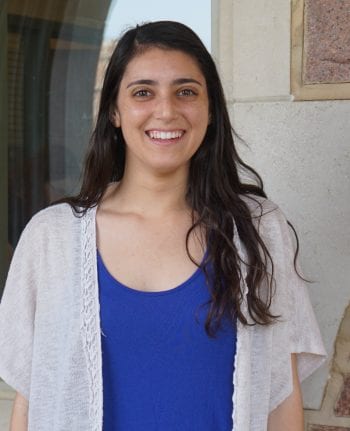Over spring break, fourteen Washington University students chose to stay in the St. Louis area and participate in Urban Immersion, an intensive five-day service trip exploring poverty, socioeconomic disparity, community relationships, neighborhood culture, and St. Louis history.
In collaboration with Gephardt Institute staff and community partners, participants engaged in one of two trip options; one with a focus on education systems, and the other on housing and homelessness. Students on the education systems trip explored education options, community engagement, child advocacy, and community collaborations involving public, charter, and private elementary schools. On the housing and homelessness trip, students explored coalitions that addressed homelessness on a micro, mezzo, and macro level. Below, several participants offer their perspectives on the experience.

Name: Carl Hooks
Class: 2017
Major: International & Area Studies
Urban Immersion Experience: Housing and Homelessness
What have you learned or how have you changed as a result of Urban Immersion?
Urban Immersion expanded my conception of housing and homelessness issues locally and nationally. While I’ve studied housing policy and displacement in foreign countries, I never understood the range of factors that drive homelessness in the United States – incarceration, lack of jobs, familial problems, eviction, etc. – and the spectrum of services available for displaced people facing different levels of housing insecurity.
How do you hope or plan to engage your community after your Urban Immersion experience?
I plan to prioritize engagement with housing and homelessness issues in whichever communities I enter moving forward. During the trip, I found it sobering and inspiring to interact with domestic non-profits that are directly aiding displaced people in St. Louis. The firsthand nature of the trip definitely deepened my interest in non-profit work.

Name: Luka Minglu
Class: 2020
Major: Potentially Sociology or Political Science
Urban Immersion Experience: Housing and Homelessness
What have you learned or how have you changed as a result of Urban Immersion?
Urban Immersion has helped me to see the homelessness issue in a more personal, intimate light, and to see numbers and statistics instead as individual people and stories. Visiting the various organizations that aim to tackle the housing issue from multi-dimensional perspectives and at different stages of the intervention process has also opened my eyes to the complexity of solutions to the same problem.
How do you hope or plan to engage your community after your Urban Immersion experience?
After my Urban Immersion experience, I hope to get in touch with the organizations we visited, and hopefully find a way to volunteer or visit. I also intend to share my experiences and new perspectives with the people around me so as to raise awareness about the homelessness issue right here in St. Louis and about the privileges that each of us have with a roof over our heads.

Name: Carly Klinenberg
Class: 2019
Major: Political Science, Educational Studies
Urban Immersion Experience: Education Systems
What have you learned or how have you changed as a result of Urban Immersion?
I had learned about educational structures and disparities theoretically in my education classes, but visiting schools and talking to community workers allowed me to more fully understand how these issues actually play out in schools. The St. Louis education landscape is very complex, and being immersed in various aspects of it for five days was incredibly eye opening. I learned a lot about how organizations with varying functions strive to keep kids in school, engaged in their learning, and cared for. However, my favorite part of the trip was interacting with people who are so passionate about education and setting their students up for success regardless of the circumstances. Their dedication is incredible and inspires me to be a more selfless, compassionate person every day.
How do you hope or plan to engage your community after your Urban Immersion experience?
Many of the organizations that we visited were members of formal or informal collaboratives. For example, we went to a school and an after-school boys and girls club on the same block, and the people we talked to at both places gushed about the ways in which they complement each other’s programs. With whatever I do in the future, I want to remember that no one accomplishes a goal alone. There’s always someone out there with the same mission who wants to help, and social issues like education inequality are too big to be solved by one person. I hope to facilitate and continue these types of partnerships, especially between WashU and local organizations.
In addition, one of my biggest takeaways was the power of productive conversation and genuine willingness to listen and learn. I believe that the first place to start in engaging with a community is observing and listening, because we don’t always know what is really going on or what the community needs.